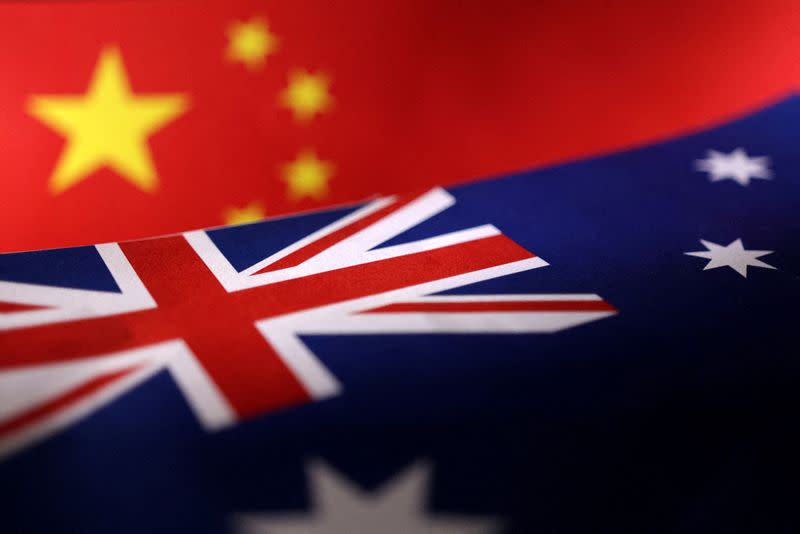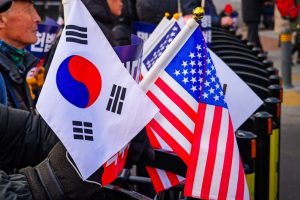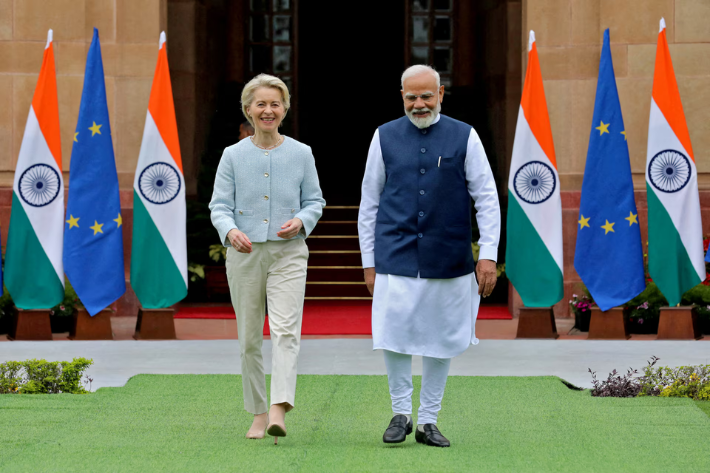The Australian government has said it will remove Chinese-made security cameras found at defence department offices and other government buildings.
Defence minister Richard Marles conceded on Thursday there was a potential security problem after being told that more than 900 surveillance cameras supplied by HikVision and Dahua, companies linked to the Chinese government, had been found at multiple office sites.
“This is an issue and … we’re doing an assessment of all the technology for surveillance within the defence (department) and where those particular cameras are found, they are going to be removed,” Marles told ABC Radio in an interview.
The checks come after officials in Britain ordered government departments in November to stop installing Chinese-linked surveillance cameras at sensitive buildings, because of security risks.
Some US states have also banned vendors and products from several Chinese technology companies.
ALSO SEE:
Biden Warns China Over Spy Balloon, Vows More Chip Action
‘Don’t overstate it’
Opposition lawmaker James Paterson said his own audit had revealed almost 1,000 units of equipment by Hangzhou Hikvision Digital Technology and Dahua Technology were installed across more than 250 Australian government offices.
Paterson, the shadow minister for cyber security and countering foreign interference, urged the government to urgently come up with a plan to remove all such cameras.
Marles said the issue was significant though adding: “I don’t think we should overstate it.”
Hikvision said it was “categorically false” to represent the company as a threat to Australia’s national security as it could not access the video data of end users, manage end-user databases or sell cloud storage in Australia.
“Our cameras are compliant with all applicable Australian laws and regulations and are subject to strict security requirements,” a spokesperson said in an emailed response.
Dahua Technology did not immediately respond to request seeking comment.
Bid to mend ties
Nigel Phair, an expert on cyber security at the University of New South Wales, said the government was taking a cautious approach.
“The concern is that these are Chinese manufactured cameras and there’s data being collected which is going back to the Chinese state,” he said.
“They are being very cautious and that’s not a bad thing in the online environment. We should take a measured approach and we should be looking at where the risks are, where the vulnerabilities are and then produce appropriate controls around that.”
Local media reported on Wednesday that the Australian War Memorial in Canberra would remove several Chinese-made security cameras installed on the premises over concern about spying.
Australia and China have been looking to mend diplomatic ties damaged in part by a 2018 Australian decision to ban Chinese tech giant Huawei from its 5G broadband network.
Relations were later damaged further by former Australian PM Scott Morrison calling for an independent investigation into the origins of Covid-19. That appeared to anger Beijing, which was accused in October 2020 of waging a shadow trade war against Australia by imposing tariffs and bans on many Australian commodities.
However, the new federal Labor government led by Prime Minister Anthony Albanese and Foreign Minister Penny Wong has sought to ease tensions with China.
And that approach appears to have paid dividends. Indeed, the first shipment of Australian coal in two years was reported to have arrived in the Chinese port of Zhenjiang on Wednesday.
Officials in Canberra are hoping that trade will also resume in Australian wine, barley and other commodities that were hit by the ‘trade war’ in recent years.
Albanese said he did not believe removing the cameras would have an impact on diplomatic relations with China.
“We act in accordance with Australia’s national interest, we do so transparently, that’s what we’ll continue to do,” he told reporters at a press conference in Canberra.
- Reuters with additional editing by Jim Pollard
ALSO SEE:
China, Australia Bid to Rebuild Trade Ties as Ministers Meet
Albanese Meets Xi, as Australia and China Eye Warmer Ties
Australia Bids to Boost Pacific Defence Links, Counter China
























